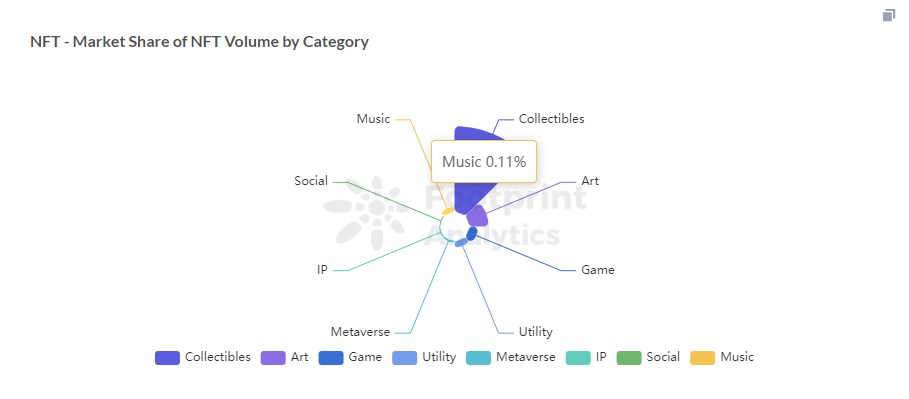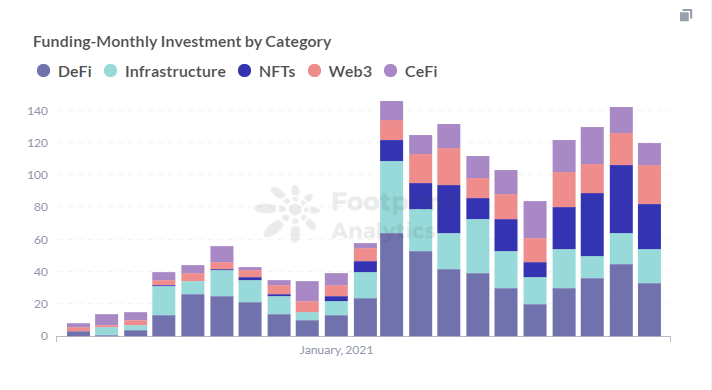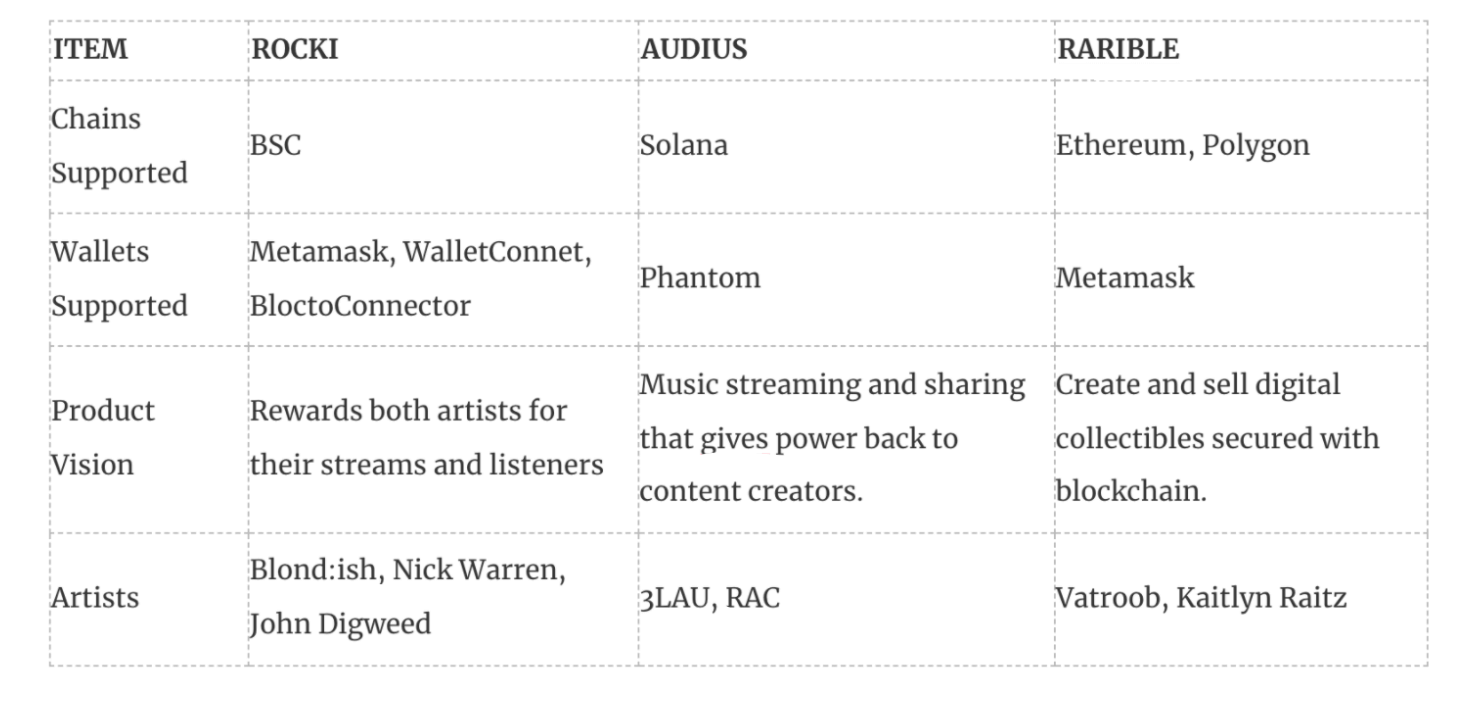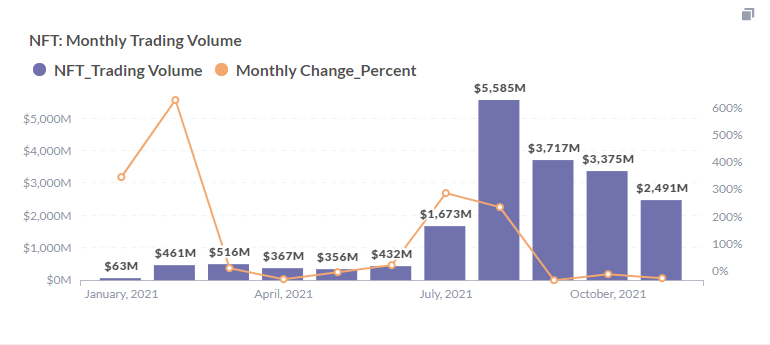- January 10, 2022
- Posted by: admin
- Category: BitCoin, Blockchain, Cryptocurrency, Investments
At the close of 2021, Collins Dictionary named “NFT” the word of the year.
Non-fungible tokens have already shaken the world of art and have become a household name. When you say “NFT”, most people will at least fathom to guess it refers to some sort of computerized image.
However, NFT technology has equal or greater adoption potential in areas outside of visual art, yet these usage scenarios are relatively unknown.
According to Footprint Analytics, music NFTs currently account for just 0.11% of the total NFT market. However, this is likely to change.

According to IFPI, the global music industry generated $21.6 billion in revenue. Meanwhile, capital markets are catching on to the potential of music NFTs.
- June: The first platform to launch music copyright NFTs, Opulous, raised $6.5 million.
- August: NFT marketplace Catalog got $2.2 million in funding.
- November: NFT music platform Royal, which helps artists musicians build web3 communities, secured $55 million in Series A funding from a16z,

What is a Music NFT?
Unlike an ordinary unit of cryptocurrency, each NFT can represent a unique digital asset, which serves as proof of ownership, while token seems alike in the cyber world. They are unique digital collectibles that can represent many categories of digital assets, including paintings, sounds, videos, and game items. Music NFTs contain music files
The history of the music industry—from vinyl records to tapes to Walkmans to Spotify—shows a clear trendline or technology making music more and more convenient, and NFTs will continue this trend.
How NFTs Will Change the Music Industry
Economic Benefits
The high price of music NFTs compared to the cost of regular listening is attractive to independent musicians. On Spotify, the average “per play” payment to artists is $0.003 to $0.005, which equates to only $3,000 to $5,000 for 1 million plays. On the other hand, music NFTs can easily fetch tens of thousands of dollars because [how is this economically possible?]
The key difference is that, besides for a price to play, music NFTs can also earn money based on their singular value to an individual, such as a fan or collector.
Attached Rights
Music NFTs often have other exciting “bonuses” attached to them in addition to trading ownership of digital collectibles.
On the one hand, buyers can use music NFTs as an equity investment, where the artist gives up a portion of song ownership, giving the buyer an actual return on their investment.
On the other hand, the artist can also add benefits to the music NFT, such as concert tickets or physical products, both of which give the buyer a memorable experience.
Proof of Action
Music NFTs can crowdfund releases, which is a great opportunity for independent artists. For example, Danny Saucedo, a Swedish artist, has released several singles with the help of fans.
Moreover, those who help crowdfund artists can also receive NFTs as proof of their commitment and action within a group, potentially leading to more benefits later on like fan-only releases, the opportunity to participate in pre-sales, and more.
3 Major Platforms for Music NFTs

While NFT platforms still support relatively few public chains, music NFT platforms have already gotten some well-known artists.
While record companies control the copyright and internet companies hold traffic, music NFT platforms connect artists with fans directly, democratizing music through fan-driven pricing and putting the music industry firmly in the hands of ordinary people.
A New Era for Creators

The NFT market has exploded, penetrating every corner of the global art market in just one year. The emergence of music NFTs has the possibility to do the same with the recording while giving artists more control over their work.
- Jan 10th 2021, Lesley
- Data Source: Footprint Analytics
This report was brought to you by Footprint Analytics.
What is Footprint
Footprint Analytics is an all-in-one analysis platform to visualize blockchain data and discover insights. It cleans and integrates on-chain data so users of any experience level can quickly start researching tokens, projects and protocols. With over a thousand dashboard templates plus a drag-and-drop interface, anyone can build their own customized charts in minutes. Uncover blockchain data and invest smarter with Footprint.
The post Footprint Analytics: Will NFTs disrupt the music industry next? appeared first on CryptoSlate.
